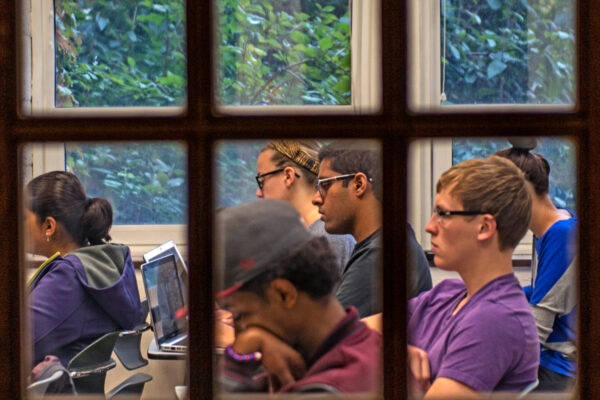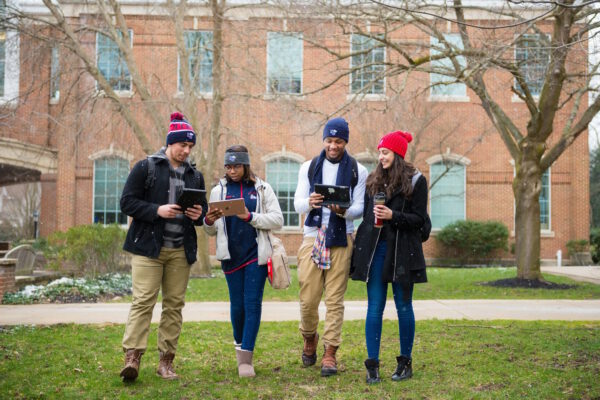The new digital technology credit at George Mason University, designed with detailed guidance from several major business in the Washington area, helps ensure that graduates will have skills and extensive knowledge in fields like statistics, data visualization, and cybersecurity.
The credential reflects the growing demand from employers for graduates who are flexible and literate in technology. While George Mason is the first to offer such a credential, it will soon be offered at other universities in the area.
Mike Fasil, a first-generation college student and the son of Ethiopian immigrants, graduated with the credential this spring. His bachelor’s degree in information systems and operations management as well as his minor in data analysis helped him line up a job as a business technology analyst.
“It’s really given me a better perspective,” Fasil said. “I feel like having [the digital credential] will help me. I can only see good things coming from it.”
While the credential is neither a major, a minor, nor a formal certificate, it offers a flexible and unique way for students to gain an upper hand in the increasingly digital marketplace.

“I have been struck by how universal the need is,” said Paul Feeko, a partner at Ernst & Young, said in and interview with The Washington Post.
The flexibility of the credential is a draw for all students, not just those with majors or minors in the STEM fields. Liza Wilson Durant, associate dean for strategic initiatives and community engagement at Mason’s Volgenau School of Engineering, was surprised at how many humanities students have signed up.
“Companies realize that people who can write and speak and who understand cultural context and policy are vital to the success of the companies,” she said. “They see the need for students with this knowledge. But if [the students] can’t work around an Excel spreadsheet, or if they can’t analyze data, [companies] can’t effectively employ them. So, we’re on the right track here by merging these two concepts.”
George Mason’s digital technology credit has not gone unnoticed by students or other higher education institutions in the area.
Virginia Commonwealth University recently launched their own program, and American University, the University of Richmond, and Virginia Tech are all slated to launch theirs in the fall of 2019.
—Thomas Pool
At a Glance
Member Institution: George Mason University
Initiative: Digital Technology Credential Program
Goal: To ensure that all students—regardless of their major—have the digital skills needed to compete in today’s workforce.
Become a member: As a member of ACE, you join more than 1,700 organizations that collectively promote, protect and advocate for students, faculty and administrators in higher education. ACE is the most visible and influential higher education association in the nation, and we are at the center of federal policy debates concerning legislation that affects campuses across the country. See more on the ACE website.
If you have any questions or comments about this blog post, please contact us.

